Leilani’s slice of wealth inequality
Not many people understand how unfairly wealth is distributed among New Zealanders. Leilani uses a kiwi favourite – the pavlova – to help her friends understand.
Special thanks to the Tick for Kids coalition for rallying Raise Your Voices, a group of young voters to develop this video for election 2020
Election Forum 2020: Child Wellbeing
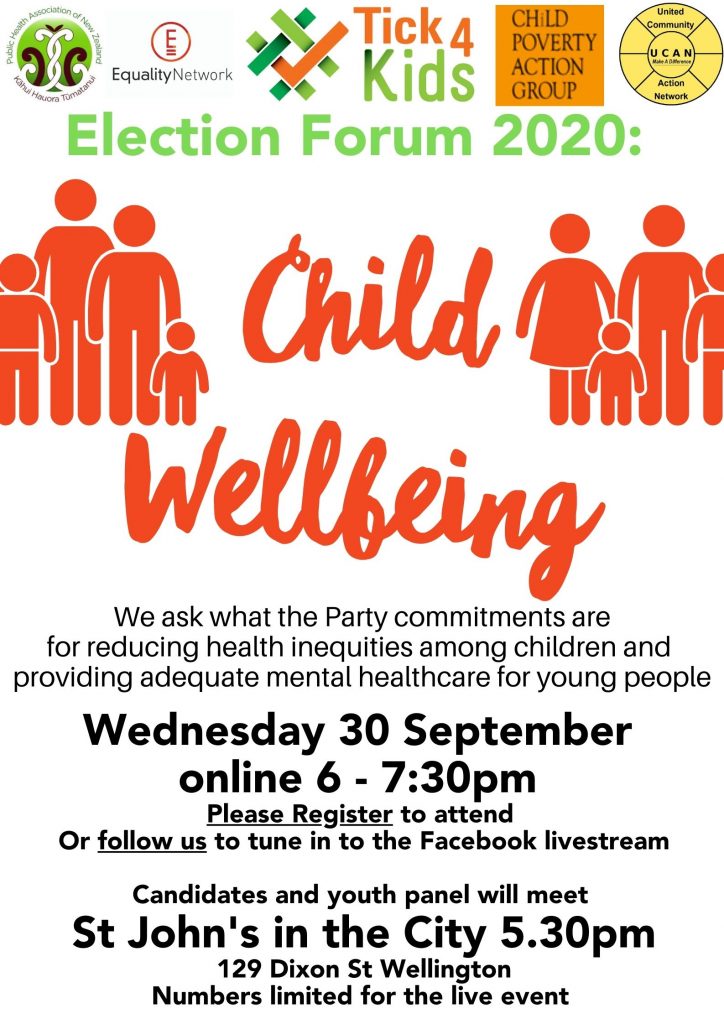
The case for tax (more of it, much more)
Laura O’Connell Rapira | Contributing writer, the spinoff, 21 September 2020
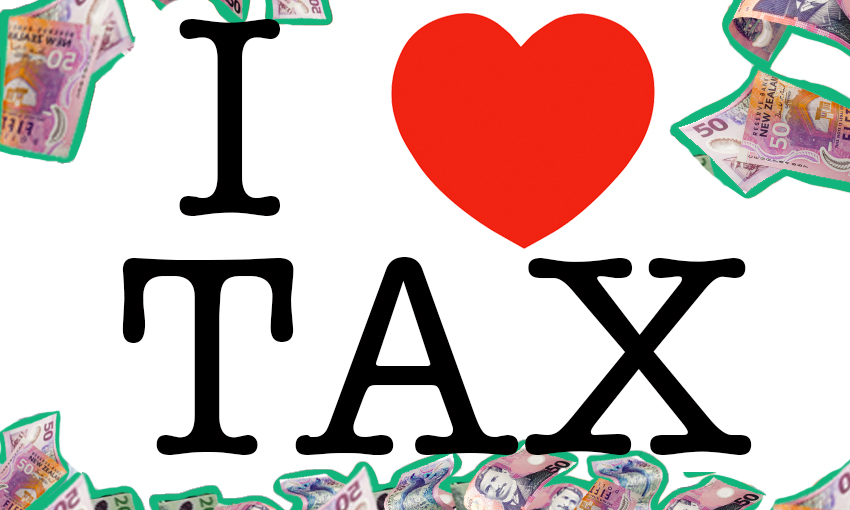
Let’s put tax at the core of this election. Sharing wealth is how we share care and responsibility for this land and all of the people in it, writes Laura O’Connell Rapira.
It’s election season in the middle of a pandemic and global economic crisis. These are strange times we find ourselves in, and looking after each other has never been more important.
What’s also important is thinking about who we trust to lead us out of this moment and into a prosperous future. In my view, that means voting for political parties that are willing to reform our tax system to help people thrive and the planet flourish.
Taxes are a highly efficient way of pooling our collective resources to fund public projects and services that benefit all of us. They fund schools, roads, trains, nurses, mental health workers, teachers, public housing, income support, conservation, superannuation, national parks, kindergartens, recycling, sewage treatment – the list goes on. Without tax, we would have to try and buy these things as individuals. Can you imagine having to organise everything needed to run your local library, landfill, community law centre and hospital? Ain’t nobody got time for that.
Read the full opinion piece here
The subdued frustration of a debate on inequality
Alex Braa, thespinoff.co.nz, 17 September 2020
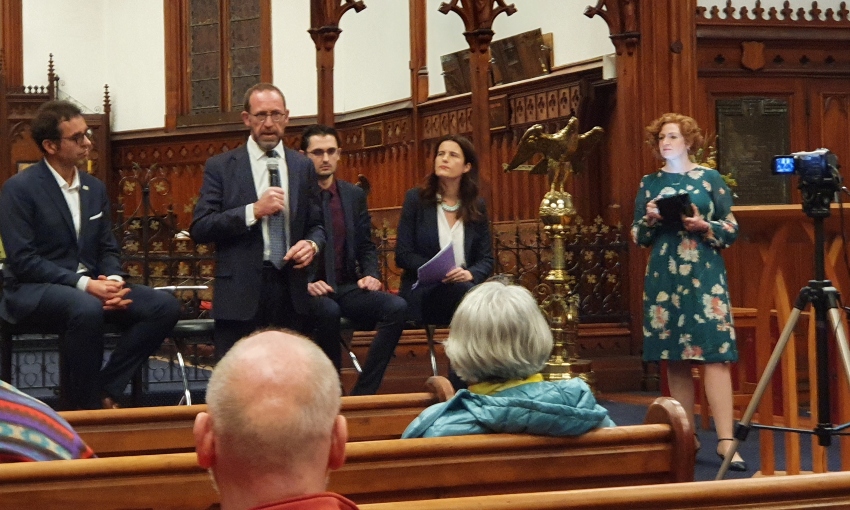
Campaign groups are trying to get issues around the welfare system, housing and poverty onto the election agenda. Alex Braae was in Wellington to see a deeply frustrating debate play out.
Many election forums give politicians plenty of room to speak about whatever they want. But at a forum on inequality, the onus was reversed, with candidates asked to account directly and specifically for how their party would help those with the least.
The Enough for All forum was held at Wellington’s St Peter’s Church, hosted by a range of poverty action groups and attended by representatives of five parties. With the nature of the discussion being heavy, the mood of the room was subdued compared to the rowdiness of many events that aim to make the election fun.
People who had lived experiences of coming up against the more difficult and punitive aspects of the welfare system first outlined their stories, before follow up questions were directed at particular politicians. The stories were personal, deeply involved and bleak, illustrating the way many experience government policy as something that’s done to them, rather than for them.
Over the course of the evening, it seemed to become a particularly frustrating room for NZ First’s Rongotai candidate Taylor Arneal and National’s education spokesperson Nicola Willis, who faced more follow-up challenges than other candidates on stage.
The event also illustrated the gap between Labour and the Greens. Labour’s Andrew Little was repeatedly questioned on his statements by the Green Party’s Ricardo Menendez March, particularly on issues of raising core benefit rates, and relationship rules for beneficiaries. His needling was never really responded to by Little, who also took the opportunity to direct some barbs to his right at NZ First’s representative.
The first question came after a demonstration of wealth owned through the slicing of a pavlova. A tiny slice was shaved off to represent the 2.5 million New Zealanders with the least. When a massive slab was given to the top 10%, candidates were asked if they supported the wealthiest paying more, with a wealth tax being an example of how that might happen.
Answers all had to start with a simple yes or no. Willis came out with a no, before speaking about how people had to pay their fair share and that a growing economy would lift all. Taylor was also a no, saying that IRD needed to be properly resourced to make that happen.
Menendez March, joining the meeting through Zoom, was the first yes on that question. He talked about both a wealth tax at the top 6% and how a tax-free threshold of $10,000 was necessary to rebalance the tax system.
Little talked about the party’s policy of a new top tax rate and called that a yes, but didn’t go near a wealth tax in his answer. Opportunities Party leader Geoff Simmons said the devil was in the detail and said rather than a blanket wealth tax, there needed to be a tax on property.
Despite the best efforts of the organisers to pin politicians down with yes or no answers, the slipperiness still showed through. An example of this came in a follow-up question from Stacey Ryan, who has spent years living with chronic pain, making her unable to work. She asked candidates if their party’s policies would force her into work, even if she was too sick to manage.
Each candidate began their answer in much the same way – no, nobody should be forced into work if they have an illness or disability that makes it impossible. However, as Ryan’s question made clear, the hoops that she has to jump through to remain on the sickness benefit (like being required to provide regular medical certificates at her own expense) makes that something of a moot point.
After each question, moderator Susie Ferguson asked the questioner whether they felt they had got an answer. “I got answers, but they weren’t necessarily the ones I was hoping for,” quipped questioner Zoe, who asked about extortionate prices for substandard rental housing.
And that rather summed up the state of the evening. Poverty remains endemic for thousands of New Zealanders, with the downturn from Covid-19 ensuring that many others will soon join them. Progress on alleviating poverty over the last three years has largely been piecemeal, focused on addressing specific facets of the existing welfare system rather any sort of systemic change. With house prices tipped to continue rising amid everything else falling apart, those with wealth will continue to get wealthier.
While the questions that were asked gave Menendez March room to discuss the party’s significantly more ambitious policies, he was hamstrung by the political realities of the Greens having weak polling and having little leverage over Labour. At one point during his pitch, he even noted that Labour had recently ruled out raising core benefit rates. It came in the context of asking for votes, but illustrated just how difficult even a stronger Green Party would find sweeping welfare reform as part of a Labour government.
Picking up on that, Ferguson took a moment to ask Little why so few of the Welfare Expert Advisory Group recommendations had been brought in, particularly on the raising of core benefits by 47%. “We could not do that in one fell swoop because it’s expensive and there are competing priorities,” he said. Nicola Willis agreed, saying “we simply can’t afford that as a country” and argued that incomes from benefits shouldn’t be too close to incomes from jobs in order to incentivise work.
Audience polling conducted over Zoom by Action Station showed that an overwhelming majority of watchers backed what the Greens were saying, with TOP coming in second place, and Labour in third. Not a single person watching online voted for National. Regardless, Willis thanked those who had questioned her for sharing their stories.
“Maybe take some of these stories and kōrero back to your teams,” said Ferguson in closing. But these stories weren’t really new. They were unique examples of what thousands of people have experienced for decades. With candidates sticking closely to their party lines, the biggest frustration of all was clear – that not enough would be done to prevent these same stories needing to be told all over again in three years.
Link to article here
New Zealand’s astounding wealth gap challenges our ‘fair go’ identity
Max Rashbrooke, The Guardian, 31 August 2020
New data shows the richest 1% are worth 68 times more than a typical New Zealander.
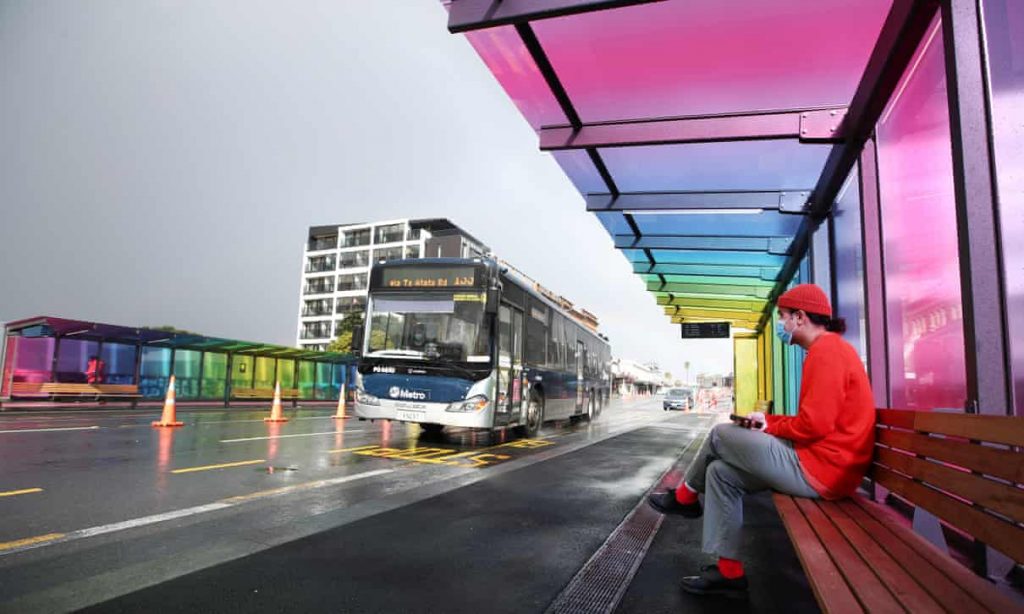
The extent of wealth inequality in supposedly egalitarian New Zealand has been laid bare by figures showing the wealthiest individuals have over NZ$140bn (US$93bn) stashed away in trusts – and overall have nearly 70 times more assets than the typical Kiwi.
The new data, drawn from the 2017-18 Household Economic Survey, are likely to underestimate true inequality, as the ultra-wealthy are generally reluctant to take part in such surveys.
The data show that New Zealand’s wealthiest 1% of adults – around 38,000 people – have $141bn in trusts. Another 150,000 or so people, rounding out the rest of the wealthiest 5%, have trusts worth a further $122bn.
Trusts are vehicles through which individuals can notionally give their assets to trustees to hold on behalf of named beneficiaries. In practice, the “givers” often retain control of the assets while having superficially ceded ownership. In the past this has allowed wealthy individuals to avoid taxes, hide assets from spouses and creditors, and receive care subsidies to which they are not entitled.
Although some of these practices have been curbed, the figures will raise renewed questions about the need to overhaul trust law. IRD research has revealed extensive use of trusts among wealthy individuals who pay relatively little tax.
The wealth inequality data, developed in conjunction with Statistics New Zealand researchers, also show that the 1% have an average (mean) of $3.6m held in trusts, $1.6m in shares and $470,000 in cash. Their debts are on average just $80,000.
The typical (median) person in the 1% is worth $6.2m. In contrast, the typical New Zealander is worth only $92,000 – 68 times less.
Among those in the poorest half of the country, meanwhile, the average person owns assets worth just $46,000 and has debts of $33,000, leaving them with a net worth of $12,000. They have negligible wealth in trusts and on average just $4,000 in the bank, leaving them vulnerable to sudden financial shocks.
When it comes to the middle classes – the 40% of the country who are above the mid-point but below the wealthiest 10% – have a higher net worth, on average $352,000, most of it tied up in housing.
Overall, the wealthiest 10% have 59% of all the country’s assets, and the middle classes around 39%. That leaves the poorest half of the country with just 2%.
These inequalities may well be embedded. The 2017-18 figures represent the status quo inherited by Jacinda Ardern’s government, whose record to date will be revealed by the 2020-21 net worth survey, now underway.
Not much change should be expected, however. On becoming Labour leader in August 2017, Ardern resuscitated the idea of a capital gains tax, 80% of which would have been paid by the wealthiest 20%. But after vociferous opposition from property investors and the National party, she eventually ruled it out under her leadership. She has also been distinctly lukewarm about the Green party proposal for a tax on wealth over $1m.
When it comes to the most unequally distributed forms of wealth, such as trusts, shares, bonds and direct ownership of companies, Ardern’s Labour-led government has shown little appetite for redistribution. In housing, a substantial and accelerating state house-building programme cannot make up for the failures of Kiwibuild and other initiatives.
Some commentators would argue that New Zealand remains the land of the “fair go”, a country where all have opportunities to get ahead. Its wealth inequality is only slightly worse than the developed country average. But it is difficult to see how it can be fair for any individual, however meritorious, to be “worth” nearly 70 times the typical New Zealander.
There are also good reasons to think that opportunities are far from equal. Wealthier parents are able to provide their children with many opportunities unavailable to poorer kids, as well as access to exclusive schools and networks.
Analysis of the NBR Rich List shows a strong dynastic trend: over one-third of businesses on the list are actively being run by descendants of the fortune’s originator, with the number of family members passively receiving the proceeds of that wealth undoubtedly higher still.
While some rich listers are entrepreneurs, developing useful new products, fortunes made in finance, insurance and real estate are predominant. Conversely, the country’s essential workers – including health staff on the front line of the coronavirus pandemic – earn so little that they are often unable to save for a house deposit.
IRD research, meanwhile, shows that more than half the country’s ultra-wealthy individuals – those with over $50m – declare incomes of less than $70,000, an implausibly low figure. They avoid tax, the IRD argues, by taking their income as untaxed capital gains, undervaluing the services they provide to their own companies, and transferring wealth to charities which they control but which make “little or no charitable donations”.
Such findings are challenging to New Zealand’s self-identity. The country’s egalitarian image was once memorably described by the historian Melanie Nolan as “a rich amalgam of truth and myth”. These new wealth figures suggest that the latter increasingly predominates.
Max Rashbrooke is a New-Zealand-based writer with twin interests in economic inequality and democratic participation and is currently the 2020 J D Stout Fellow at Victoria University of Wellington.
Inequality in Aotearoa New Zealand – update 2020
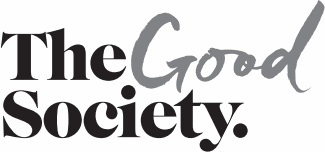
The Ipsos New Zealand Issues Monitor reported in December 2019 that Poverty / inequality is the second highest ranking issue in Aotearoa with 29% considering it as a top issue. It has been in the top 5 issues since measurement began. Housing is the top issue. Read more here .
But there has been little improvement in lowering economic inequality. Max Rashbrooke comments that the report on Household incomes in New Zealand: Trends in indicators of inequality and hardship 1982 to 2018, by Bryan Perry for the Ministry of Social Development’s key annual report makes for depressing if not surprising reading.
Economic inequality remains at the very high level the country was left with in the late 1990s following 15 years of market-based reforms. Poverty rates for the general population and children remain high. Relative poverty rates virtually all increased 2008-17. In contrast, material deprivation decreased. Nonetheless, the overall story is the continuing absence of substantial action against economic inequality and poverty, both of which damage individuals and the social fabric alike. For more details refer here .
Progress Towards Equality – this paper is the latest in a series by the Salvation Army Public Policy Unit highlighting housing, the criminal justice system and income and tax rates as areas where not enough is being done to promote equality in Aotearoa. The report can be accessed at: www.salvationarmy.org.nz/towardsequality/ or on Facebook
Global economic inequality and women’s unpaid/underpaid care
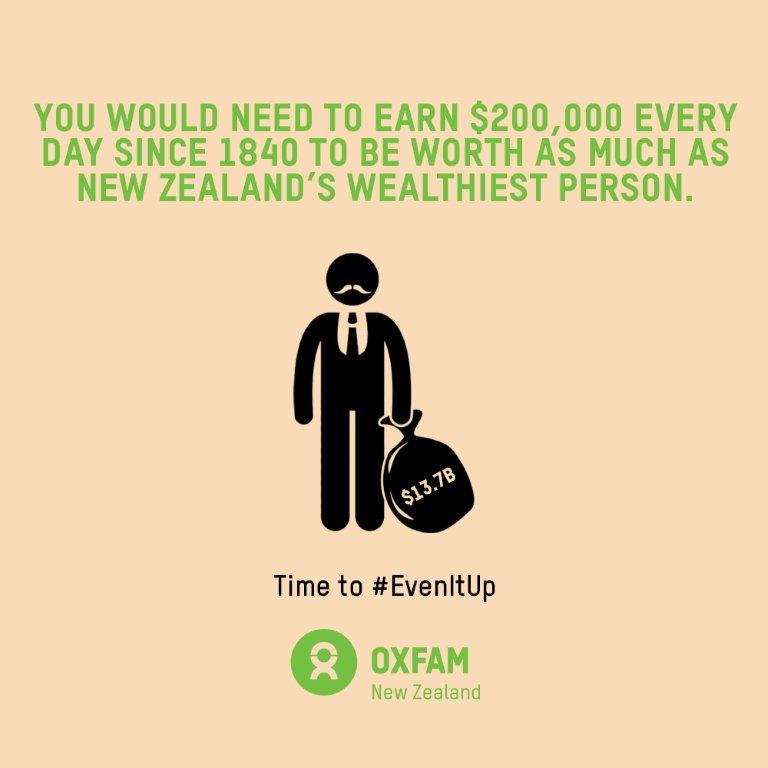
Oxfam’s new report, Time to Care, shows that global inequality is out of control. A handful of billionaires have more wealth than they will ever be able to use, while 4.6 billion people around the world struggle to stay afloat, particularly women and girls.
The wealth of New Zealand’s billionaires has increased from US$4 billion in 2006 to over US$12 billion in 2019, but New Zealand currently has no form of wealth tax.
Just 0.5% of the wealth of New Zealand’s richest person would provide our government $68 million dollars to invest in things like teacher aides and after-school care, to support women in the huge amounts of care work they contribute to our society. The summary, full report and methodology can be seen here.
EQUALITY NETWORK HUI REPORT 2019
We need to fundamentally reframe our systems settings to address the drivers causing and underpinning inequality; structural change in systems especially financial.
The Equality Network Hui was held in Wellington on 27 June 2019. The hui covered important topics such as child poverty; a living wage; taxation; public health; mental health; education; welfare, housing and the environment. Read the Report, 2019 Hui, here.
Oxfam International and Development Finance International launched the second version of their Commitment to Reducing Inequality Index. Covering 157 countries, the Index measures governments’ actions in 2017 on social spending, tax and labour rights – three policy areas that are critical to preventing and reducing inequality. This year’s Index sees new indicators on harmful tax practices and women’s rights. New Zealand is ranked 27 out of 157 countries. Amongst high-income OECD peers, New Zealand is ranked at 25 out of 35 countries. New Zealand does reasonably well globally on social spending, ranked at 17, and on labour rights, with a global rank of 25. Yet while satisfactory on social spending, during 2017 New Zealand’s expenditure on education as a share of all social spending decreased. Our taxation regime is also regressive. When compared to all other countries across the world, New Zealand is ranked at 100 for the progressivity of its tax system, compared to one for Australia, and 76 for Kiribati. Our government is taking action, some of which was captured in this year’s Index, some of which will be measured next year. Yet, there is still more work to be done to make New Zealand a society where we all get a fair go.
In New Zealand, income gaps have widened faster in the last 30 years than almost anywhere else in the developed world. That makes the country more divided and less healthy, and strikes at the idea of equal opportunities or the ‘fair go’ for everyone. And the public knows it: the polling depicted above shows inequality is the number one issue for New Zealanders.
According to May 2017 research from Roy Morgan, poverty and the gap between rich and poor is the single biggest issue of concern to New Zealander’s at present. New in-depth research exploring the concerns of New Zealanders both in New Zealand and globally found New Zealanders, like Australians, are concerned about war and terrorism on the global front. But at home in the run-up to this year’s election it’s all about the economy especially housing affordability, housing shortages, cost of living, inflation, unemployment and homelessness. (Roy Morgan New Zealand, 3 July 2017)


The Equality Network brings together the groups who are responding to this concern by campaigning to reduce income inequality and create greater well-being and life chances for all. Our profound belief is that in a more equal society, everyone is better off.
This site has everything you need to know about our vision, our members’ successes to date, and the actions our members are taking. We’d love you to join us and help make New Zealand a fair and healthier place for everyone.


